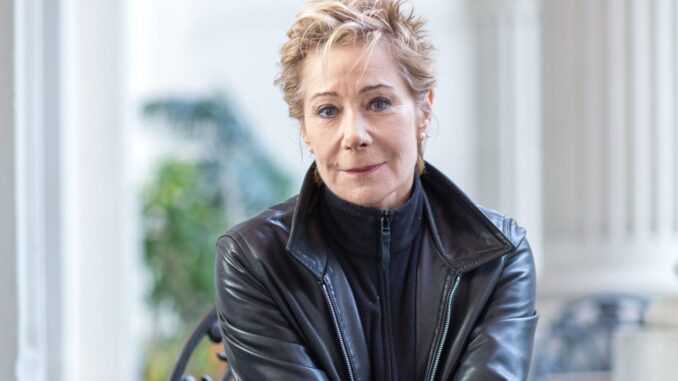
We moved from the US to the UK when I was a child, and so we used to watch a lot of US sitcoms. My mother loved The Phil Silvers Show and I Love Lucy – it was her silly sense of humour; she used to call it vaudeville, this gentle undermining with a clownish wit. It was such a delight to watch these shows with her and hear her giggle.
I thought Phil Silvers was a genius. He would play this hysterical army character called Sergeant Bilko, who was always getting into trouble, and his timing was incredible. I Love Lucy was also so perfect, with the chemistry between Lucy and her husband, Desi Arnaz, who played the stooge. Watching them was like getting an insight into my parents’ backgrounds and into where I came from; the humour was so not English – it was witty and quick, unlike people such as Benny Hill, who I thought was mainly just setting up gags. I suppose it was a kind of Jewish American humour and that was what I was brought up on, alongside other shows such as Cheers and Taxi.
It was really silly TV, but it was innocent, too. It has such nostalgia for me and when I was first approached to do My Family, the showrunner, Fred Barron, was an American, so the humour seemed to hark back to this type of naughty yet somehow gentle comedy. It was my first time approaching this kind of work – I had always thought of sitcoms as meaning sitting-down comedy because every time I watched it, everybody would come into the room and sit down. It was something new for me and recording it in front of an audience was the most scary thing, but Robert Lindsay and I managed to create a great rapport.
I don’t watch much television any more, as I don’t seem to have the time and I’m a real technophobe, but I’m not sure that the kind of humour in I Love Lucy and The Phil Silvers Show could faithfully be recreated because it is so innocent and pure. The quickness of their wit really influenced me as a child and it meant I knew I wanted to act from a very young age, even though my parents [Sam Wanamaker and Charlotte Holland] weren’t keen on it because they knew from their experience as actors that rejection is not the happiest place to be.
What’s great about these shows is that everybody just supports each other. It’s a collective. There has to be chemistry and that’s what they had in abundance – it’s what makes them so watchable still.
